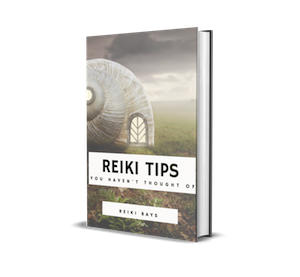Article by Deborah Lloyd, Reiki Master
In the hospice world, it happens all the time. Patients ask the social workers about medications; they ask nurses if they should write a new will; they ask doctors what exercise will strengthen their legs. Patients are not intentionally asking staff questions they are not qualified to answer. Rather, patients think of questions during staff visits and simply want an answer.
Professional staff know what their training entailed and what they are qualified to answer. A proper answer for the social worker would be: “Making medication decisions are outside my scope of practice, may I call the doctor for you?” This kind of reply always ensures quality care for patients.
In the same way, Reiki practitioners need to be careful about answering questions they are not trained to answer. It is not unusual for clients to ask medical, emotional/therapeutic, or spiritual type questions during or after a Reiki session, as the healing energies will frequently bring up unresolved issues. The Reiki practitioner is an available, helpful person, standing right there. And, after all, the question came up during the treatment itself. It is understandable why clients would assume the practitioner may be able to help them.
Scope of practice refers to being a trained expert in a specific field. Any professional person will honestly state he cannot answer a question when he does not have the expertise. It can be difficult since every Reiki practitioner wants to be helpful. For the practitioner, it can feel like they are letting a client down. For the client, it can feel frustrating. She finally finds the courage to start facing an issue, only to be told, “not here, not now, not with me.”
After the Reiki practitioner states he cannot answer a question, the next thing he should do is validate the client’s feelings, by making a statement such as, “I am sorry I cannot help you with that question as I have not been trained as a physical therapist. I imagine that may be hard for you to hear right now.” After a brief discussion about the client’s feelings, the practitioner can give the client a list of local, qualified professionals. Or, he can give them instructions how to locate a professional who can assist them.

Image by Pezibear
Sometimes, Reiki professionals (as well as other professionals) answer such questions because of their own feelings of inadequacy. And, not knowing something makes them feel even more inadequate – even though it is not a logical thought. If a client starts asking you questions you cannot answer, the purpose is not to make you feel bad. She is simply looking for answers.
All our thoughts and actions during Reiki sessions have this main focus – “whatever is best for the client’s healing experience.” What is best for clients may sometimes make us feel a little uncomfortable, but don’t let those feelings of discomfort create an unhelpful situation. If you are unsure what to say or do in a situation, reply with something like, “I need to think about your question. May I get back to you on that?” You are telling the client her question is so important, you want to give it serious consideration. That is creating a healing experience for the client.
Free eBook download: We’ve created an eBook with our best articles on this topic, and offer it for free to all our newsletter subscribers.


Deborah Lloyd is a Usui and Karuna Reiki® Master and certified holistic therapy practitioner, providing Distant Reiki sessions and training in Asheville, NC. Deborah is the author of two books, 22 Messages from the Archangels; and, Believe and it is True: A Story of Healing and Life Lessons. She is also one of the co-authors of Reiki 101: 101 Answers for Your Reiki Questions. Reach Deborah at [email protected] and on Facebook at Deb Lloyd Healing.





Leave a Reply